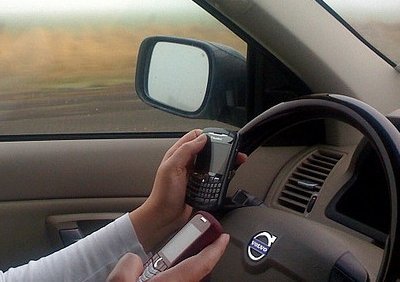Poking and Driving Worse than Drink

A study commissioned by the UK’s Institute of Advanced Motorists reported that eight percent of drivers admitted using a smartphone for e-mail and social networking while driving. Of those, 24% aged 24 or younger – a group at a higher crash risk – confessed to using a smartphones at the wheel.
The IAM used a driving simulator to examine the effects of young drivers using a smartphone to access Facebook. In every test they were badly affected. It was shown that sending and receiving Facebook messages slowed reaction times by 38%; key events were missed, the ability to maintain a central lane position disappeared and they did not respond as quickly to a car ahead gradually changing speed.
Levels of impairment
The IAM said, when comparing these results to previous similar studies, the level of driving impairment while using a smartphone was greater than the effects of alcohol, cannabis and SMSing - the last slowing reaction times by 37%. Hands-free phone conversations slowed reaction times by 26.5% and cannabis by 21%. Blood alcohol levels below 100mg/100ml slowed reaction time by six to 15%.
Based on these figures, the IAM is urging the British government to highlight the dangers of a driver using a smartphone, citing how attitudes to seat belts and driving after consuming alcohol had changed through the previous three decades.
'Incredibly dangerous'
IAM chief executive Simon Best said: “This research shows how incredibly dangerous it is to use a smartphone while driving yet it is a relatively common practice. If you take a hand off the wheel to use a phone, read the display and think about the message then you’re simply not concentrating on driving.
“Young people have grown up with smartphones and using one is part of everyday life but more work needs to be done by the government and social network providers to show young people that they are risking their lives and the lives of others if they use a smartphone while driving.”
Related News


